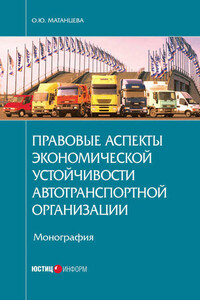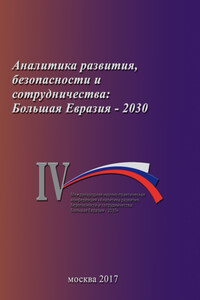International Journal of Recent Technology and Engineering (IJRTE)
ISSN: 2277–3878 (Online), Volume-8 Issue-2, July 2019
Svetlana Nikolaevna Sayfieva, Oleg Fedorovich Shakhov, Valery Pavlovna Nevmyvako, Mikhail Yuryevich Chernavsky, Nataliya Vladimirovna Vysotskaya
Revised Manuscript Received on 30 July 2019.
* Correspondence Author
Svetlana Nikolaevna Sayfieva*, Market Economy Institute of RAS (MEI RAS), Moscow, Russian Federation.
Oleg Fedorovich Shakhov, Russian Presidential Academy of National Economy and Public Administration (RANEPA), Moscow, Russian Federation.
Valery Pavlovna Nevmyvako, Russian Presidential Academy of National Economy and Public Administration (RANEPA), Moscow, Russian Federation.
Mikhail Yuryevich Chernavsky, Moscow State University of Technology and Management named after K.G. Razumovsky (first cossack university), Moscow, Russian Federation.
Nataliya Vladimirovna Vysotskaya, National Research University Higher School of Economics (HSE), Moscow, Russian Federation; Russian University of transport (RUT (MIIT), Moscow, Russian Federation.
© The Authors. Published by Blue Eyes Intelligence Engineering and Sciences Publication (BEIESP). This is an open access article under the CC-BY-NC-ND license http://creativecommons.org/licenses/by-nc-nd/4.0/
Abstract: The aim of the present work is conducting the theoretical and legal analysis of threats and risks of tax security of the state, as well as developing on this basis measures to eliminate them and prevent their occurrence, improving methods of minimization, and neutralizing the possible consequences of their impact. To solve the set goal, the method of expert survey was used that allowed generalizing the concept of tax security, determining its economic, social, and legal nature, as well as defining the main risks and threats to the tax security of the state. The article substantiates the relevance of the study the issue concerning insurance of tax security of the state. Various approaches of scientists to the definition of the tax security concept essence were considered, which would satisfy the interests of all entities of tax relations. To determine the efficiency of tax administration to the benefit of the tax security, the main threats and risks of the tax security caused by external and internal factors are identified, as well as measures to eliminate them and prevent their occurrence are proposed. The authors propose the stages of tax risk management when constructing an effective system of tax security, as well as develop a structural and logical scheme of risk management of tax security of the state.
Index Terms: tax security, economic security, tax policy, fiscal and regulatory functions of taxes, tax security indicators; tax risks, tax burden.
I. INTRODUCTION
Understanding the role of taxation in the provision of economic security includes consideration of its positive effect on macroeconomics (growth of the tax potential of the state), as well as negative aspects in the form of nonreceipt of tax revenues to the budgets of all levels, criminalization of tax relations, growth of tax nihilism, the crisis of the tax system, destroying the socio-political foundations of the state and depriving the authorities of financial resources.
In the modern world, the importance of taxation is so great that the formulation of the tasks facing the tax policy without considering them from the standpoint of the relationship and mutual influence with the economic security, can lead to a loss of consistency and efficiency of the overall economic strategy, since taxes are objectively included in each of the elements, which are distinguished during strategy analysis, namely,
– economic independence;
– sustainability and stability of the national economy;
– ability to self-development and progress [1], [2].
Economic independence implies the independence of the state in the formation and development of its own economic system and the implementation of foreign economic activity to the benefit of the people. Economic independence is possible only in the presence of all its metasystems, subsystems, elements, and components. At the same time, given the internationalization and globalization of the economy, any country in the world has to resort to measures to protect its own economic interests, of which taxation is the most effective measure.
The sustainability of the national economy implies the ability of the latter to respond to changes in the external and internal environment through continuous improvement of the components of its internal structure based on the adaptation mechanism in order to achieve the goals of socio-economic development and the effective functioning of the national economy.
The sustainability of the national economy is the main task of the macroeconomic policy of the state and an important condition for ensuring the economic security. This is expressed, first of all, in the formation of state policy aimed at supporting the national economy in a sustainable condition. The role of taxation in this process is most fully implemented through the regulatory function, which is the ability of taxation to coordinate, harmonize, organize, cooperate, and stratify social interaction and management.
Taxation also affects various components of the economic system, namely: pricing, volume and growth rates of social production, sectoral structure and directions of capital migration, technical level of production, scope of research, labor demand and supply, level of employment and wages, consumption model, distribution of income in society, its social and regional differentiation, and conditions of foreign economic activity.
The ability to self-development and progress involves the ability to choose state’s own development model, to carry out continuous modernization of production, effective investment and innovation policy, and to develop the intellectual and spiritual potential of the country.
Taking the above into account, it should be noted that taxation occupies a special place in the economic security system since it not only provides financial resources to almost all components of the economic security (financial, social, environmental, legal, etc.) but also is a tool of the impact on economic and social processes.








